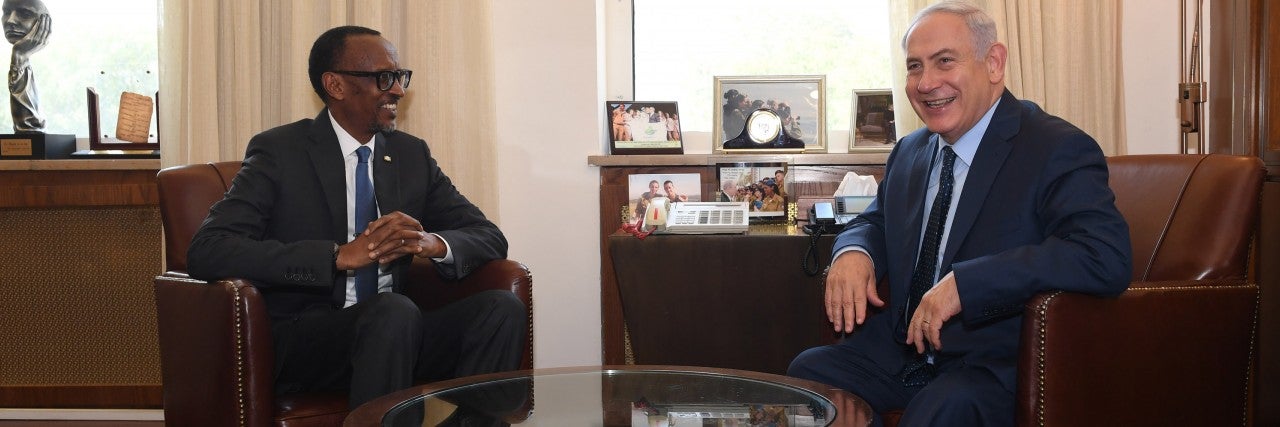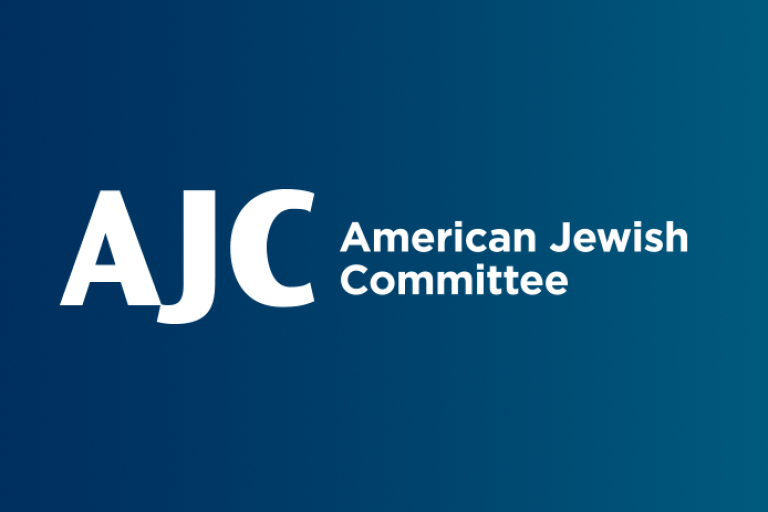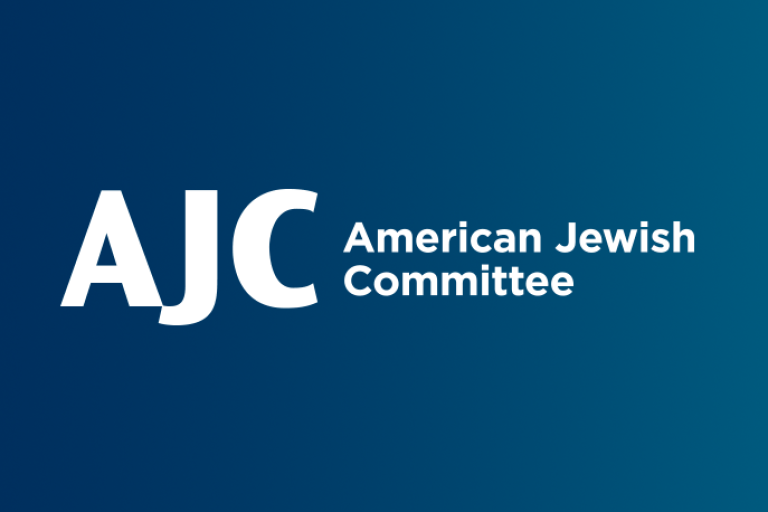July 17, 2017
By Col. (Ret.) Dr. Eran Lerman
For Israelis, there was no shortage of bad and saddening news this summer. The latest was a terror attack in Jerusalem on Friday, July 14, that took the lives of two brave young Israelis, Druze police officers shot by terrorists who emerged from the Temple Mount compound – three Israeli Arabs from Umm al-Fahm, apparently influenced by the rabid incitement of Shaykh Ra'id Sallah's (outlawed) Northern Wing of the Islamic Movement. The Arab League, Qatar, and, of course, Shaykh Qardawi, as well as Jordan (which is disappointing), chose to focus on Israel's response, demanding the reversal of the decision temporarily denying access to the compound. Hamas was joyous; Mahmoud Abbas denounced the attack; Egypt (and interestingly, Turkey) issued more balanced responses; and the Saudis, to Hamas's dismay, have said nothing so far. Just a month ago, a female Border Guard soldier was killed in a similar attack, and intermittent violence continues elsewhere.
More bad news came from several directions, played up by most of Israel's famously abrasive media. Internationally, there were ugly votes (albeit with fewer supporters for the Arab position, and rising numbers of abstentions) in UNESCO, essentially endorsing a Palestinian narrative on Jerusalem and Hebron that leaves no room for the Jewish heritage in both places. Internally, the country is undergoing a number of high-profile corruption cases, two of them particularly serious – one over bribery for the acquisition and servicing of submarines acquired from Germany, and the other over insider trading in our most important telecommunication corporation. Both involve people very close to the Prime Minister. Add to this the bitter double crisis over the proposed pluralist prayer space near the Western Wall and over the question of conversion to Judaism, in which the pressures exerted by (or rather, within) the ultra-Orthodox political parties seemed to prevail, tragically, over the legitimate concerns and sensitivities of the majority of Diaspora Jewry, particularly in North America. The sense of growing crisis is reflected in the efforts by all Israeli political parties to position themselves for a possible collapse of the existing coalition, and perhaps early elections.
Still, for those interested in Israel's standing in the world, this was also a period of remarkable progress: indeed, one can speak of an unprecedented streak of diplomatic breakthroughs and successes systematically played down by the same media, who have no wish to let the Prime Minister bask in the approving light that such achievements deserve. If the UNESCO votes still point to Israel's difficulty at the UN, it is equally manifest that the country is now enjoying a broader range of friendly bilateral and multilateral relations than ever before.
The pattern was set by the Trump visit, May 22-24,well-grounded in the longstanding traditions of the “special relationship,” yet also setting new precedents—the first President to include Israel on his first tour abroad; the first to visit the Western Wall while in office, accompanied by his Jewish daughter and son-in-law–and overall, exuding commitment and goodwill.
Then came the Prime Minister's participation in the summit of ECOWAS (Economic Community of West African States) in Liberia on June 4. His very presence there sent a powerful message, as did his speech, which focused on the need to stand together against terrorism. This has since been followed by a highly successful visit by President Kagama of Rwanda to Israel; and in October 2017 there will be an Israeli-African summit in Lome, Togo. This marks a full-circle restoration of relations that were once excellent, but were disrupted in the 1970s.
On June 15, for the third time in little more than a year, the leaders of Israel, Greece, and Cyprus met for a trilateral summit – this time in Thessaloniki – cementing further what is fast becoming a strategic bloc of great importance in the Eastern Mediterranean. This alliance is all the more remarkable because of its political diversity: Netanyahu, like President Nikos Anastasiades of Cyprus, is Center-Right; Prime Minister Alexis Tsipras of Greece is decidedly Left, but the three have no problem working very closely together. Practically every other week, a trilateral working session meets at a ministerial or professional level. A military dimension – the IAF participated (side-by-side with several Arab air forces) in a major exercise in Greece in March, and Israel's new commando brigade trained in Cyprus more recently – adds to the importance of this strategic building bloc, as does the prospect of energy cooperation.
More was to come. The highest point – indeed, Israel's most significant diplomatic achievement in many years – was the visit of Prime Minister Narendra Modi of India on July 4-6. He did not even feel obliged to pay the traditional visit to Ramallah as well, and instead focused with notable intensity on the broad range of issues on which Israel and India can cooperate and on which Israel's help is of growing importance to India's future – from cyber and the culture of innovation to water management and agriculture. The intimacy between the two leaders was unmistakable as was the almost limitless potential for growth.
Next, on July 16, was Netanyahu’s visit to Paris, among other purposes, to participate in the commemoration of the 75th anniversary of the deportations of French Jews from the Vel d’Hiv. At the event, Emmanuel Macron became the first French President ever to publicly call anti-Zionism a form of antisemitism. Then it was on to Budapest, where the Prime Minister joined a summit meeting of the Visegrad Group – Poland, the Czech Republic, Slovakia, and Hungary – on July 17-18. This did not come without a price, as Israeli diplomats and decision-makers found themselves caught in the coils of the Hungarian government's somewhat antisemitic campaign against George Soros (the Israeli Ambassador denounced the campaign, Netanyahu's office denounced Soros). But close association with this dynamic group in "The New Europe" – which held a similar meeting recently with President Sisi of Egypt – is in any case an important component of Israel's European policy.
All in all, significant diplomatic progress with America, Africa, the Mediterranean, Asia, Eastern Europe: What can account for this extraordinary sequence, coming on the heels of earlier achievements in recent years? Five general observations are offered below:
1. To begin with, hard work ("with a little bit of help from our friends") – including substantive AJC support on all five fronts. The Israeli diplomatic corps is under-funded, under-appreciated, and, in the absence of a full-time minister, subject to various bureaucratic raids on their traditional turf. But they still do stellar work, often hand-in-glove with local Jewish communities, in promoting relations, fighting off BDS activists, and identifying fields of common interest.
2. What has made this work somewhat easier in recent years is the growing realization worldwide that Israel has things to offer to developed and developing countries alike. Israel can boast the highest rate in the world (by far) of recycled water and the most advanced desalinization capacities; an innovative approach to agriculture, particularly in arid areas (the indirect benefit of Jews having been denied the right to own land for centuries, and thus coming to these professions with no old habits to shed…); a dynamic high-tech cluster including the world's cutting edge in cyber security – and there is more on the list. Of equal importance for Israel's clients, and also for the ability of our defense industries to sustain themselves and provide the IDF with reasonably priced state-of-the-art capabilities, is Israel's ability to tailor specific solutions to other countries’ security needs.
3. Therein lies another driver of this change: more and more countries around the globe have concluded that Fukuyama was wrong and that the world will remain a place of conflict and danger for some time to come. In terms of the political sociology of the decision-making elites, this enhances the relative weight of the "cognitive communities" of soldiers and intelligence officers, which are more likely than others to understand what Israel is going through – and what Israel has to offer their countries.
4. Meanwhile, one of the main factors that kept key players away from Israel's doors for many years is now, so to speak, as dead as the Dodo: if once upon a time a pro-Israeli stance raised the danger of acrimony with "the Arabs" writ large, today we live in a world in which Saudi Arabia, Egypt, and Israel see eye-to-eye on most strategic issues. Lo and behold, the United Arab Emirates have officially accused Al Jazeera of antisemitism…. In the regional power struggle between ideological camps, Israel is an important player within the Camp of Stability: recent Russian efforts to take Israeli interests in Syria into account indicate a healthy respect for Israel's military power and regional role.
5. Finally, the steady hand of the IDF in managing the wave of intermittent Palestinian violence without sliding into collective punishments against the population at large has not only won compliments from Palestinian leaders such as Prime Minister Rami Hamadallah, it has also become an important diplomatic enabler, since many countries, much as they wished for a strong relationship with Israel, would not have been politically free to visit or host Netanyahu if images of bloodshed were flooding their media.
Thus, all five factors combine to create a unique moment. And angry as many of Israel's traditional friends may be with specific aspects of the Prime Minister’s policy, they should nevertheless help Israel consolidate these remarkable gains.
Eran Lerman is the former deputy for foreign policy and international affairs at the National Security Council in the Israeli Prime Minister's Office. Prior to that, he served as director of AJC Jerusalem.
Photo caption: Prime Minister Benjamin Netanyahu, at the Prime Minister's Office in Jerusalem, held a working meeting with Rwandan President Paul Kagame in JUly 2017. Photo credit: Kobi Gideon (Israeli Government Press Office)


